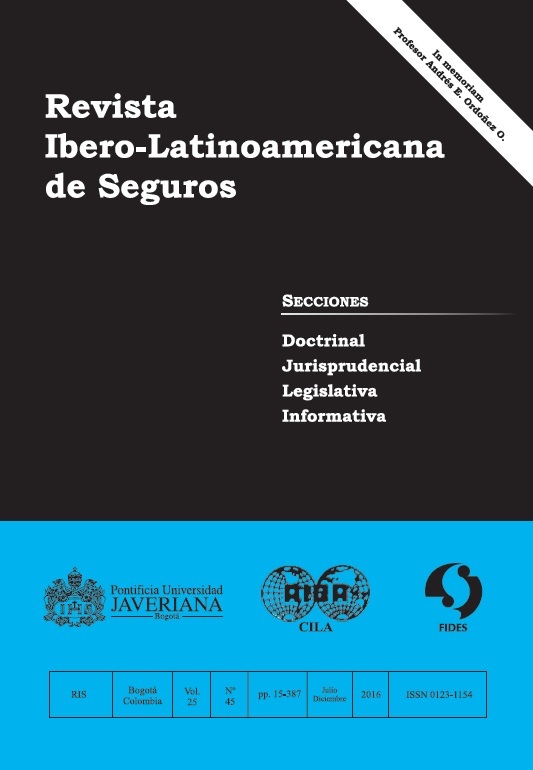Abstract
The Civil Chamber of Colombia’s Supreme Court in Decision SC 7814-2016 of 15th June 2016 reversed a Second Degree Decision referred to the business interruption cover in fire insurance. In this Decision the Supreme Court held the notion that in Colombian law exist about loss in the business interruption insurance. This article describes the position of the Supreme Court in the local discussion of insurance law and tries to align the Court’s arguments in an international academic dialogue. Further, our query tended to find prospective elements to improve the Colombian insurance law system. Hence, we will develop in a first moment the academic discussion about the business interruption insurance (I) to later describe the Supreme Court’s arguments concerning the question about the period of policy lapsation (II).
This journal is registered under a Creative Commons Attribution 4.0 International Public License. Thus, this work may be reproduced, distributed, and publicly shared in digital format, as long as the names of the authors and Pontificia Universidad Javeriana are acknowledged. Others are allowed to quote, adapt, transform, auto-archive, republish, and create based on this material, for any purpose (even commercial ones), provided the authorship is duly acknowledged, a link to the original work is provided, and it is specified if changes have been made. Pontificia Universidad Javeriana does not hold the rights of published works and the authors are solely responsible for the contents of their works; they keep the moral, intellectual, privacy, and publicity rights.
Approving the intervention of the work (review, copy-editing, translation, layout) and the following outreach, are granted through an use license and not through an assignment of rights. This means the journal and Pontificia Universidad Javeriana cannot be held responsible for any ethical malpractice by the authors. As a consequence of the protection granted by the use license, the journal is not required to publish recantations or modify information already published, unless the errata stems from the editorial management process. Publishing contents in this journal does not generate royalties for contributors.


